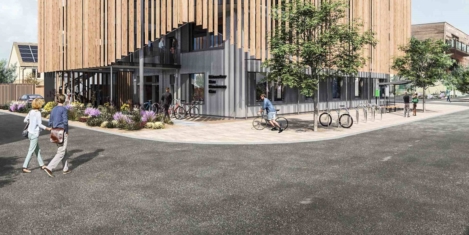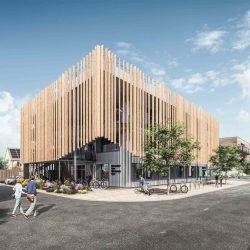September 4, 2017
Third of sick notes are given out for mental health issues, claims NHS study
 One in three signed off cases of absenteeism in the UK is related to mental health problems, with more than five million Britons being signed off work for conditions including anxiety, according to an NHS study of fit notes issued by GPs over a 28 month period. The number of workers signed off sick or put on restricted duties because of stress and anxiety rose by 14 per cent in the most recent year according to the report. Mental health and behavioural conditions were the most common reason to be off work, making up 31 per cent of cases, followed by musculoskeletal conditions. The NHS Digital report, running to March 2017, said in 2016-17 there were 573,000 cases of people off sick with anxiety and stress-related conditions, compared with 503,000 cases the previous year.
One in three signed off cases of absenteeism in the UK is related to mental health problems, with more than five million Britons being signed off work for conditions including anxiety, according to an NHS study of fit notes issued by GPs over a 28 month period. The number of workers signed off sick or put on restricted duties because of stress and anxiety rose by 14 per cent in the most recent year according to the report. Mental health and behavioural conditions were the most common reason to be off work, making up 31 per cent of cases, followed by musculoskeletal conditions. The NHS Digital report, running to March 2017, said in 2016-17 there were 573,000 cases of people off sick with anxiety and stress-related conditions, compared with 503,000 cases the previous year.








 A new scheme to help the NHS cut the costs of empty space in their buildings has been launched this week by NHS Property Services (NHSPS). Properties that qualify for the scheme must be deemed surplus to NHS requirements and may be re-let, disposed of or considered as a development opportunity. The new Vacant Space Handback Scheme comes in response to feedback from commissioners who want to reduce the cost of maintaining space that is no longer needed for clinical services. The cost of maintaining vacant space is kept as low as possible, though some costs are unavoidable where rent, business rates and some service charges remain payable. The total amount and cost of maintaining vacant space in the NHS is difficult to calculate, but costs are estimated to be in excess of £10 million a year on the NHS Property Services estate.
A new scheme to help the NHS cut the costs of empty space in their buildings has been launched this week by NHS Property Services (NHSPS). Properties that qualify for the scheme must be deemed surplus to NHS requirements and may be re-let, disposed of or considered as a development opportunity. The new Vacant Space Handback Scheme comes in response to feedback from commissioners who want to reduce the cost of maintaining space that is no longer needed for clinical services. The cost of maintaining vacant space is kept as low as possible, though some costs are unavoidable where rent, business rates and some service charges remain payable. The total amount and cost of maintaining vacant space in the NHS is difficult to calculate, but costs are estimated to be in excess of £10 million a year on the NHS Property Services estate.
 New data protection legislation – due to come into force next year will lead to a boost in recruitment, claims new research from
New data protection legislation – due to come into force next year will lead to a boost in recruitment, claims new research from 
























August 23, 2017
I’ve got some real estate here in my bag
by Paul Carder • Comment, Flexible working, Property, Technology
We’ll marry our fortunes together.
I’ve got some real estate
Here in my bag.
So we bought a pack of cigarettes,
And Mrs. Wagner’s pies,
And walked off
To look for America.
“Kathy”, I said,
As we boarded a Greyhound in Pittsburgh,
Michigan seems like a dream to me now.
(more…)